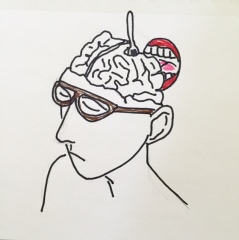
As a child I had a spectacular memory. I routinely memorized all the books read to me. At two, I could recite The Night Before Christmas, which my parents urged me to do for adults’ entertainment. I just liked memorizing things, a concept difficult for me to imagine now, as an older adult who Can’t Remember Shit.
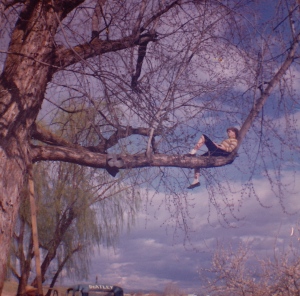
When did I lose my memory? In high school plays my parts were small, but my lines would desert me at critical moments. As a college student and a feminist activist who frequently gave speeches, I began to forget words as I stood onstage talking. I was told the name for that condition: nominal aphasia. Where did it come from? No one knew. When I said to my mother, “I used to be so smart. What happened?” she thought for a moment and then replied, “I just don’t know.” That was not the answer I was hoping for, but at least it was an acknowledgment that something had changed.
It wasn’t just words I was forgetting. I forgot nearly my entire childhood and had to rely on my brother for memories. I frequently forgot things I had pledged to do. I forgot the life stories of my closest friends and I routinely forgot people’s names.
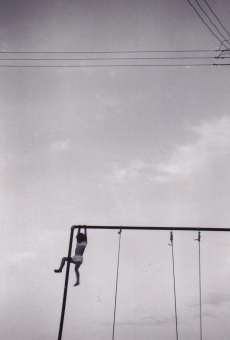
Speaking publicly became increasingly difficult until I stopped speaking extempore and began reading my speeches. Writing has always been frustrating and slow. Just because a word is in my vocabulary does not mean it will come out of my brain. The feeling is like having a word on the tip of my tongue. I can almost see it, just out of reach. I spend much time looking up synonyms when I can’t think of the word I want.
My brain plays tricks on me. Just because I’ve finally remembered something does not mean I won’t lose the memory again in seconds. Certain words continue to elude me. For example, for years I could never remember the word lupine. Finally, it has come back to me. Still, for some reason I feel compelled to learn the names of things and I must memorize the names of trees, flowers and mushrooms again every season, like Sisyphus continually rolling that boulder up the hill.
At some point, maybe in my 30s, I began to think of my poor memory as a disability that I had to live with. I worked at letting go of feeling bad for forgetting. I accepted that I would never get better and I asked friends to adjust (they know never to tell me secrets as I can’t remember whom to keep the secret from). This helped, although there wasn’t a certified category I fell into—still isn’t.
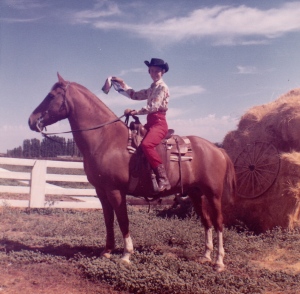
Mine is an invisible disability. Over the years I’ve been able to live with it and live a pretty normal life. I do what people in the early stages of Alzheimer’s do. I fake it. I make lists. I write everything down. I apologize. Now that I’m in my 60s, I don’t feel so alone. Most of my friends are struggling with age-related memory loss, but I think to myself: This is what it’s always been like for me, my entire adult life.
Although I’ve accepted my predicament, I still want to know what happened to me and why. My wife, who worked as a speech pathologist with brain-injured clients, sees the world of human interaction through the lens of cognitive function. It’s a sort of worldview, like socialism or humanism. Her worldview has taught me to look at my own disability as a kind of brain injury. Of my memory loss my wife asks, is it a storage problem or a retrieval problem? This is one of the things she tests for as a speech therapist. She says anomia (or nominal aphasia) is not the same thing as short-term or long-term memory loss. In the case of anomia, I have a retrieval problem. The word is in my vocabulary; I just can’t retrieve it. Long-term or short-term memory loss involves a different part of the brain. So I exhibit two different kinds of memory loss.
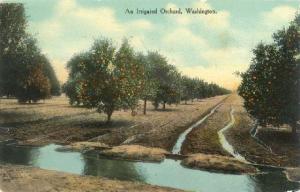
How did my brain get injured? Physical injury is a clear possibility. I was a rambunctious child who fell off horses (and was taught always to get right back on). Really, considering how many times I climbed to the tops of things, I was amazingly fall-resistant. But there was one time when the horse I was riding ran me through an orchard and I was swept out of the saddle by a low branch. My riding buddy told me afterward that I was knocked unconscious and had seizures. My lower back was sore from hitting the cantle, but I didn’t notice any effect on my memory at the time. Then there was a minor car accident where I suffered neck lash (not the more serious whiplash, said the doctor).
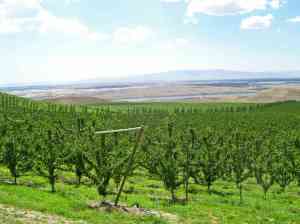
Loss of childhood memories is often associated with childhood trauma, but I don’t exhibit any other signs of trauma. I think I had a pretty ordinary childhood.
Could pesticides have eaten my brain? I was born into an era when pesticides were seen as a revolutionary antidote to bug infestations. DDT was everywhere in the 1950s and home gardeners sprayed it freely without knowledge of its destructive consequences. In my hometown of Yakima, Washington, the apple capital of the world at that time, most of us worked as apple pickers in the fall. Our schools even closed during the harvest so kids could help their families get the crop in. We lived in the middle of orchards where crop dusters routinely dusted everything around us. Farmers pulled big spray tanks behind tractors that shot a fan of pesticides clear to the top of the trees. We often stood close to the tanks and let the mist blow over us. Every spring, right at the time when farmers would start spraying, our family would harvest asparagus along the ditch banks and where it grew in the uncultivated area around the trees. We loved it and we ate pounds of it.
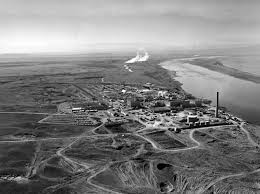
As kids, we went barefoot everywhere, but we were cautioned not to walk barefoot in the orchards or to swim in creeks and ditches, where farmers routinely dumped the dregs of their spraying (killing aquatic life in the process). When my neighbor Carla’s horse got out of his corral and into her family’s apple orchard, he died from ingesting pesticides sprayed on the orchard. The year was about 1965. What was the chemical? Trying to sort out the historical use of pesticides is making my head hurt. Besides, as Rachel Carson explained in Silent Spring, these chemicals can combine to form new poisonous compounds that we can’t even test for or identify. Research into pesticide-related illnesses among farmworkers and crop duster pilots has shown memory loss to be only one symptom of pesticide exposure.
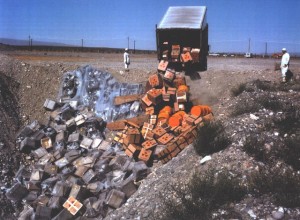
Not only did I grow up in a pesticide-rich environment, but also Hanford, the nuclear plant that manufactured the plutonium for the first nuclear bomb and for most of the bombs in our nuclear arsenal, was only 50 miles east of our home. There was that little incident in 1949 when I was six months old. It was like the leak at Three Mile Island except it wasn’t an accident. This leak was deliberate, and it was covered up until the 1980s. The plant has been leaking radioactive isotopes and radionuclides into the environment since 1944. Radioactive materials entered the environment through releases in the air, in Columbia River fish and through food grown nearby and milk from cows pastured nearby. Now decommissioned, the plant is still leaking. There is still a huge amount of radioactive material in the soil and plants around the reservation and we are told it’s only a matter of time before the polluted ground water finds its way to the Columbia River. Hanford is the most contaminated nuclear site in the U.S. and cleanup is the longest with no end in sight. In Yakima, we were exposed plenty, but the people directly downwind suffered most. Called downwinders, they organized citizens groups to find out more information after the government was shown in 1986 to have covered up releases. Most of those people died from rare cancers. Memory loss was probably just a mild side effect for downwinders exposed to radioactive materials.
I long ago accepted that I will never know what ate my brain. Maybe after I die some scientist will want to dissect it and I’d be happy to contribute to the advancement of science.

A great piece, Molly! And great photos and captions, too. Love, your faithful follower, Yvonne
LikeLiked by 1 person
I really like this one Molly! I learned new things about you, and the pictures added a lot. Great job! Barb
LikeLiked by 1 person
I lived in Yakima for a couple of short stints in grade school, and I recall the orchards were also scattered throughout the neighborhoods. I also remember driving through the hop fields, also close in to the city, and smelling that pungent hoppy aroma. Perhaps that’s why I love beer? Great post Molly!
LikeLiked by 1 person
Great blog Molly! I could picture everything in my mind from your great descriptions. Keep writing! Love, Ana
LikeLiked by 1 person
Thanks Ana, and thanks for your loyal readership.
LikeLike
I enjoyed reading your stories today, especially regarding memories of the Yakima Herald. My experiences growing up out in Tieton were much more shielded from events of the outside world i’m glad you have continued writing. A friend from the distant past and fellow intern at the paper, summer of 1969.
Take care,
Zeb Lilja
LikeLiked by 1 person